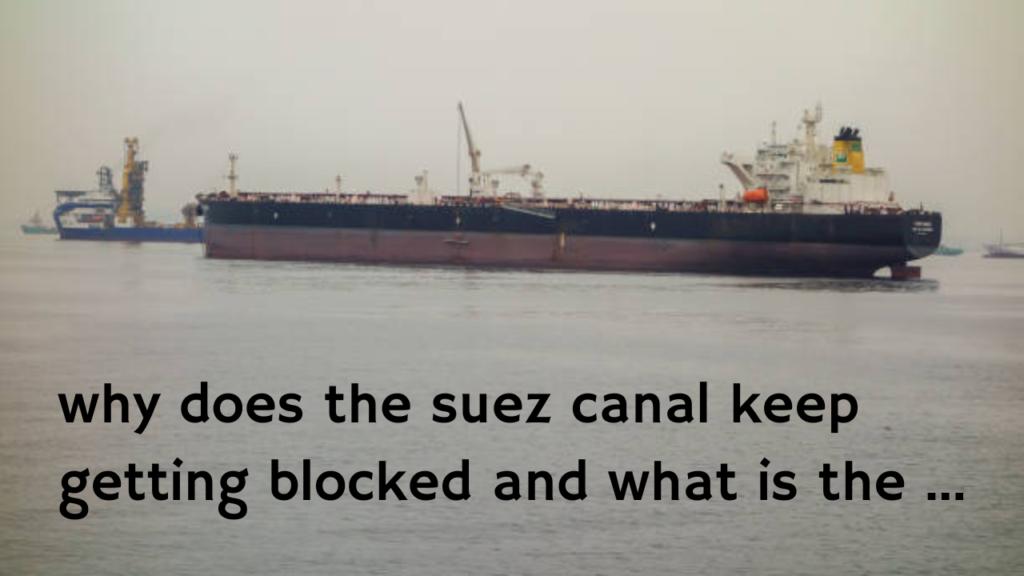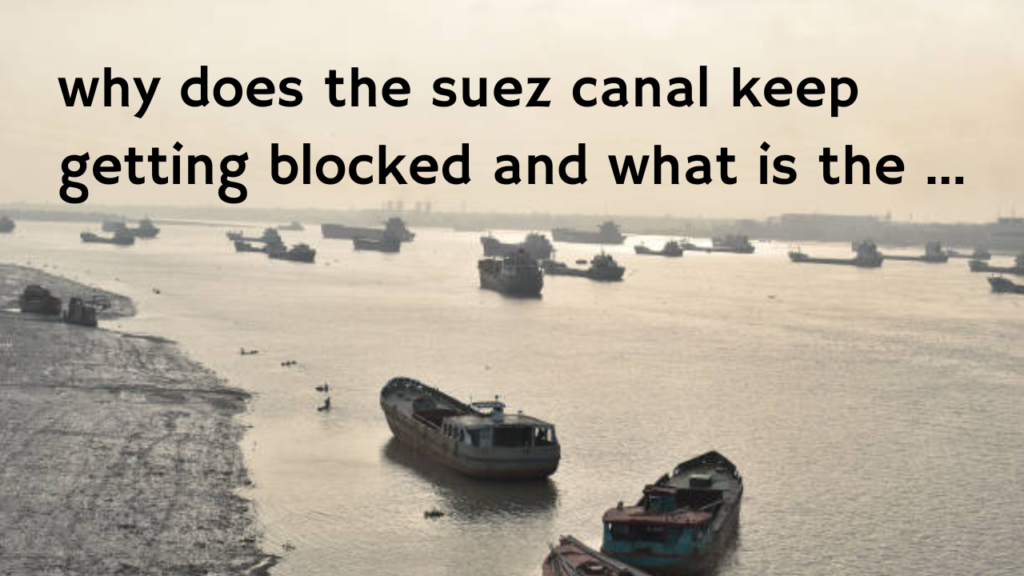The Suez Canal is a cornerstone of global trade, connecting the Mediterranean Sea to the Red Sea and providing a crucial shortcut between Europe and Asia. Avoiding the lengthy route around Africa’s Cape of Good Hope saves shipping companies time and money. Despite its strategic importance, the canal faces periodic disruptions that reverberate across the global economy. But why does the suez canal keep getting blocked and what is the … to this recurring problem?
What Makes the Suez Canal Prone to Blockages?
The Suez Canal is a marvel of engineering, but its design and geographical location introduce challenges that make it vulnerable to blockages. Below are the primary factors contributing to its susceptibility:
Narrow Passageways
Though over 193 kilometers long, the canal is narrow for modern-day mega-ships. Some segments are just wide enough for one-way traffic. Large vessels, like container ships carrying thousands of tons of cargo, require precise navigation. Even the slightest deviation can cause them to run aground, obstructing the channel entirely.
Adverse Weather Conditions
Weather in the region can be unpredictable. Strong winds and sandstorms are common and can affect a ship’s steering, especially when combined with the canal’s narrowness. The infamous Ever Given blockage in March 2021 occurred due to strong crosswinds that pushed the massive ship sideways, causing it to get stuck.
Human Error
Even with advanced navigation systems, human judgment remains crucial in manoeuvring vessels through the canal. Pilot errors or miscommunication among crew members can result in catastrophic accidents.
Mechanical and Technical Failures
Ship breakdowns, ranging from engine failures to issues with steering mechanisms, also pose risks. A single malfunctioning vessel can halt traffic in both directions for days.

The Impact of Suez Canal Blockages
When the canal is blocked, the ripple effects are felt worldwide. The economic and geopolitical consequences are significant and far-reaching.
Disruption of Global Trade
As one of the busiest shipping routes, any blockage in the Suez Canal delays the transport of goods. This affects supply chains, increases shipping costs, and can even lead to shortages of essential commodities, such as electronics, food, and medical supplies.
Rising Oil Prices
Roughly 10% of the world’s oil supply passes through the canal. Blockages disrupt oil shipments, often resulting in a spike in global oil prices, which further affects economies.
Geopolitical Tensions
The canal is located in a politically sensitive region. Prolonged blockages can strain relationships between nations dependent on this critical route and heighten tensions over its management and security.
What Can Be Done to Prevent Future Blockages?
To reduce the likelihood of blockages and ensure smoother operations, several solutions have been proposed and are under consideration:
Widening and Deepening the Canal
Expanding the canal’s width and depth would accommodate larger vessels and allow two-way traffic in more segments. This would reduce congestion and make navigation safer, even during adverse weather conditions.
Improving Navigation Technology
Modernizing the canal’s navigation systems with advanced GPS, automated controls, and real-time monitoring tools could help ships maintain precise trajectories, reducing the chance of accidents.
Strengthening Emergency Response Capabilities
A rapid response team equipped with powerful tugboats and dredging equipment could quickly address incidents like grounding or mechanical failures, minimizing downtime and economic disruption.
Encouraging Diversification of Trade Routes
While the Suez Canal is indispensable, promoting alternative shipping routes, such as the Cape of Good Hope or the Northern Sea Route (made accessible due to Arctic ice melting), can reduce the dependency on a single chokepoint.

The Suez Canal: Balancing Opportunity and Risk
The Suez Canal remains one of the most significant trade arteries in the world. However, its strategic importance also makes its vulnerabilities a global concern. By addressing the factors contributing to blockages and implementing robust mitigation measures, the canal can continue facilitating global commerce without frequent disruptions.
Also Read : A 529 Plan Can Help You Save More Money Than a Traditional Savings Account Because…
Understanding why does the suez canal keep getting blocked and what is the … is essential for safeguarding international trade and ensuring the resilience of global supply chains. The risks can be managed with proactive efforts, and the canal can sustain its critical role in connecting the world.













































Comments 1